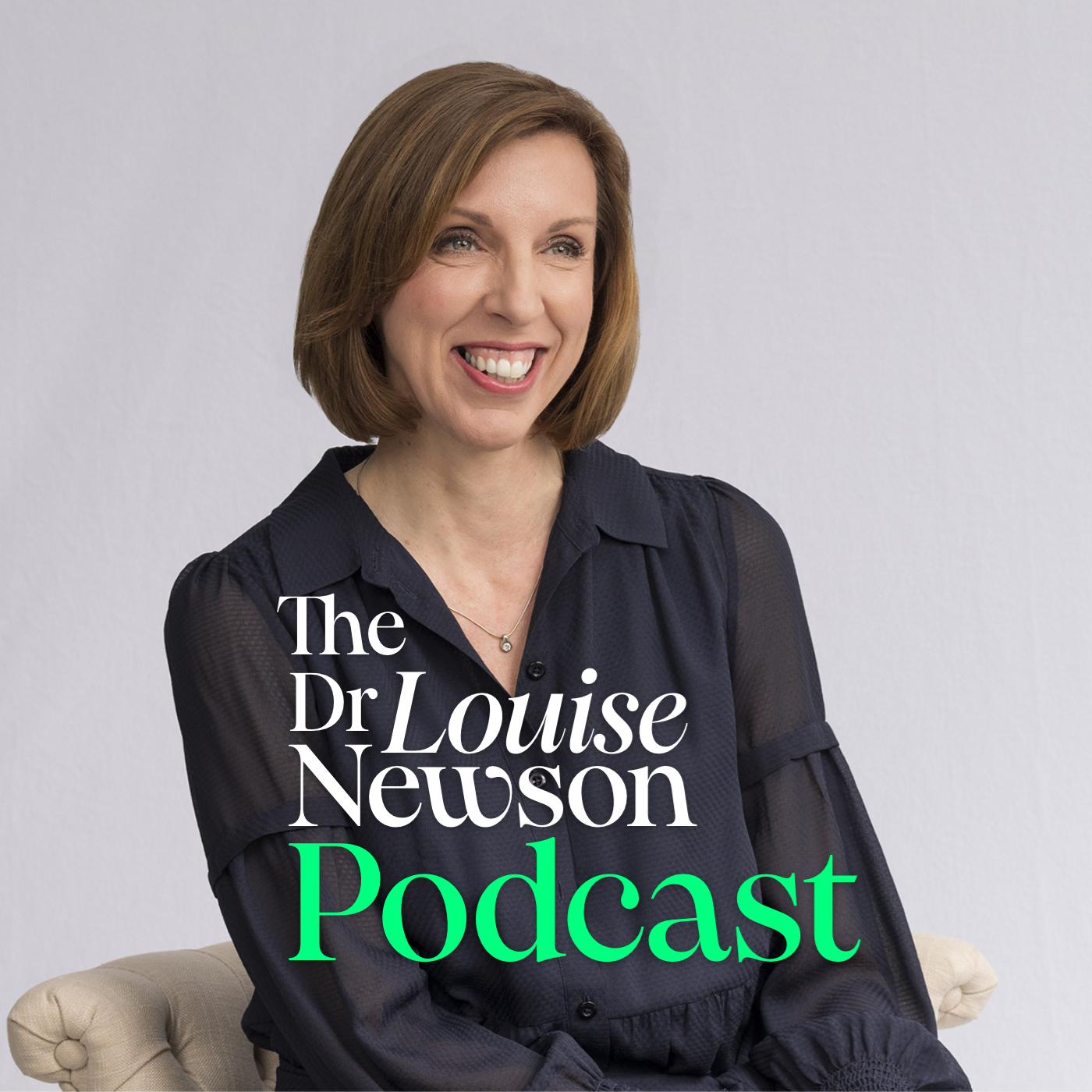
8.5M
Downloads
311
Episodes
Dr Louise Newson is an award-winning physician, respected women’s hormone specialist, educator, and author committed to increasing awareness and knowledge of perimenopause, menopause, and lifelong hormone health. Each week, Louise dives into the newest research, treatments and hot topic issues, providing accessible, evidence-based information to empower your future health. Joined by fellow experts and special guests, with answers to your burning questions, Louise explores how hormones impact every aspect of our lives. Described as the “medic who kickstarted the menopause revolution”, Louise aims to empower a generation of women to have a greater understanding, choice and control over their treatment, bodies, minds and future health through their hormones. She is the creator of the award-winning free balance app, a Sunday Times bestselling author and the founder of the Newson Health clinic. With over three decades of clinical experience, Louise is a member of the Royal College of Physicians, a Fellow of the Royal College of GPs, a Visiting Fellow at Cambridge, a regular contributor to academic journals including the Lancet and the British Journal of General Practice, and has been awarded an honorary Doctorate of Health from Bradford University. DISCLAIMER: The information provided in this podcast is for informational purposes only and is not intended as a substitute for professional medical advice, diagnosis, or treatment. Always seek the advice of your physician or other qualified health providers with any questions you may have regarding a medical condition. The views expressed by guests are their own and do not necessarily reflect the views of Dr Louise Newson or the Newson Health Group.
Episodes

Tuesday May 02, 2023
Tuesday May 02, 2023
Making a welcome return to the podcast is menopause activist, author and documentary maker Kate Muir.
Kate is the author of Everything You Need to Know About the Menopause (but were too afraid to ask) and the producer behind Davina McCall’s two award-winning menopause documentaries; her third documentary, investigating the contraceptive pill, is currently in production.
This week, after more than 200 episodes of the Dr Louise Newson Podcast, Kate is the one asking the questions. She asks Dr Louise about her hopes for HRT and menopause care over the next decade, and about the importance of hormones for healthy ageing and prevention of future disease.
They also discuss barriers to accessing HRT, the so-called natural approach to the menopause and tackle claims the menopause is being over-medicalised.
And in place of the usual top three tips, Dr Louise shares the four things in her handbag that she can’t live without.
For more about Kate visit her website
Follow Kate on Twitter @muirkate and Instagram @muirka
Kate Muir photo credit: Suki Dhanda

Tuesday Apr 25, 2023
201 - More than skin deep: menopause, skin and HRT doses with Dr Andrew Weber
Tuesday Apr 25, 2023
Tuesday Apr 25, 2023
Dr Andrew Weber is Medical Director of the Bodyvie Medi-Clinic in London and has more than 40 years of experience as a GP and 25 years specialising in advanced medical aesthetics and cosmetic procedures.
In this episode, Dr Weber and Dr Louise Newson discuss the impact of the perimenopause and menopause on the skin and throughout the body, the importance of hormones and benefits of HRT, and why it is crucial healthcare professionals listen to their patients.
The episode also covers how HRT has advanced and the importance of individualising treatment to find the right dose – Dr Weber likens HRT to buying a bespoke, made to measure Savile Row suit, rather than an off-the-peg outfit.
For more about Dr Andrew Weber and the Bodyvie Medi-Clinic visit bodyvie.com
Follow Dr Andrew Weber on Twitter at @drandrewweber
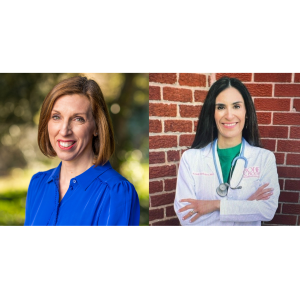
Tuesday Apr 18, 2023
200 - Osteoporosis: how to protect your bones during menopause and beyond
Tuesday Apr 18, 2023
Tuesday Apr 18, 2023
Bone density for women can plummet around the time of the perimenopause and menopause.
An estimated one in two women over 50 (and who do not take HRT) worldwide will develop osteoporosis. This puts women at high risk of bone fractures, which can have a major impact on health and wellbeing.
Here Chicago-based Dr Kristi DeSapri, who specialises in bone health, joins Dr Louise Newson to talk about what can increase the risk of your bones becoming weak, the role of hormonal changes in this and what to do about it.
Hear what the latest research says about the valuable role that HRT can play in protecting bones to keep you fit and strong in the future.
Dr DeSapri shares her top three tips for listeners worried about their bone health:
- Find out how healthy your bones are and whether you could be at risk of fractures. This could include booking a bone density scan, or completing free online assessments and taking that information to your doctor
- Increasing evidence suggests HRT can help protect bone health, so consider this treatment option to keep your bones strong
- Find out about the importance of bone health so that you can be your own advocate - make sure you have the right information to make the right decisions.
You can follow Dr DeSapri on Instagram @boneandbodywh. Her website is www.boneandbodywh.com

Tuesday Apr 11, 2023
199 - Rosacea and menopause: what’s the link?
Tuesday Apr 11, 2023
Tuesday Apr 11, 2023
Consultant Dermatologist Dr Sajjad Rajpar makes a welcome return to the podcast this week to talk about the chronic skin condition rosacea, and how it can be impacted by the perimenopause and menopause.
In a special episode to mark Rosacea Awareness Month, Dr Louise and Dr Sajjad discuss the physical and psychological effects of rosacea, as well as offering practical advice on avoiding triggers, and treatment strategies.
Dr Sajjad’s top three tops if you have or suspect you have rosacea:
- Really look at your skincare routine and strip it right back to a gentle non-foaming cleanser and a light moisturiser containing ceramides.
- Sunlight can be a trigger for rosacea, so block out the sun as much as you can.
- Consider talking to your GP about trying active topical ingredients such as azelaic acid, metronidazole and ivermectin, because they can be a real game changer.
For more information about Dr Sajjad, visit www.midlandskin.co.uk

Tuesday Apr 04, 2023
198 - Joe Wicks: how to exercise and stay active during the menopause
Tuesday Apr 04, 2023
Tuesday Apr 04, 2023
Joe Wicks really needs no introduction: he’s a fitness coach, presenter and bestselling author who kept the nation moving during the COVID-19 lockdowns. Joe is also one of the expert contributors in Dr Louise Newson’s new book, The Definitive Guide to the Perimenopause and Menopause.
In this episode, Joe and Dr Louise discuss the importance of keeping active, and finding the motivation and time to exercise during the perimenopause and menopause.
Joe offers tips on setting achievable goals, plus beneficial exercises, and they talk about how replacing hormones with HRT will help ease symptoms so women can also better focus on exercise and nutrition.
Joe’s top three tips if you are struggling with motivation to exercise:
- Prioritise your sleep: see sleep as an investment to give you more energy to work out
- Work out in the morning: working out earlier can be transformative to how you take on stress at work, and for your relationships too
- Prep like a boss: meal prepping on a weekend will protect you against fast foods and convenience foods during the week.
Follow Joe Wicks on Instagram @thebodycoach
Find out more about the Body Coach app on Instagram @bodycoachapp and online at www.thebodycoach.com
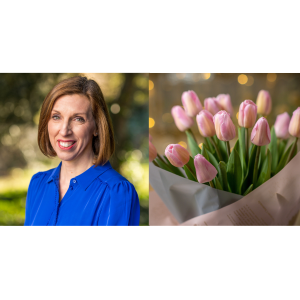
Tuesday Mar 28, 2023
197 - The problem with medicalising the menopause without HRT
Tuesday Mar 28, 2023
Tuesday Mar 28, 2023
Advisory: this podcast contains themes of mental health and suicide.
In this episode, Jo shares a moving account of her menopause experience before finding the right treatment for her.
Struggling with numerous symptoms including vertigo, dry mouth and eyes, joint pain and vaginal dryness, Jo went from not visiting her GP for six years to monthly appointments. After being prescribed a cocktail of medication and spending thousands of pounds on dental treatment to no avail, Jo felt she was never going to get better.
She talks to Dr Louise about the effect of low hormones, and the transformative impact finding the right dose and type of HRT had on her mental and physical health.
Jo’s three top tips:
- Download a period tracker, such as the balance menopause support app, to track your periods. This will help you notice any changes and identify any patterns of other symptoms occurring.
- Educate yourself: try to read as much as possible about the menopause so that you can understand what's happening with your body.
- Reach out to friends: by being honest and saying how you're feeling, you can help others to open up too.

Tuesday Mar 21, 2023
Tuesday Mar 21, 2023
In this episode, Dr Louise is joined by Kat Keogh to talk about Dr Louise’s new book, The Definitive Guide to the Perimenopause and Menopause.
Packed with advice and information from leading experts, it is the definitive, accessible and evidence-based guide to help you navigate your perimenopause and menopause.
It covers key facts about hormones, family histories, the complete guide to HRT, libidos, mental and physical health, how menopause affects careers and relationships and so much more.
Kat, who works at Newson Health, shares her top three reasons to buy The Definitive Guide to the Perimenopause and Menopause:
- It gives clear, practical advice on talking about the menopause with your children.
- If you’re starting, at any age, to feel like your hormones are off balance, buy this book to find out everything you need to know about the role of hormones in your health and how to manage that.
- If you’re struggling and alone with the perimenopause or menopause, turn to this book for reassurance, support, knowledge and to be empowered.
Order your copy here
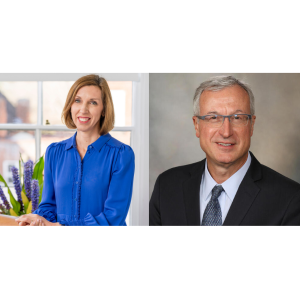
Tuesday Mar 14, 2023
195 - Health risks and treatment of surgical menopause with Dr Walter Rocca
Tuesday Mar 14, 2023
Tuesday Mar 14, 2023
Dr Walter Rocca is a neurologist from the Mayo Clinic in Minnesota, USA, where he studies common neurological diseases as well as the aging processes between men and women. He has a particular focus on estrogen and the effects of menopause on health risks.
In this episode, Dr Rocca explains how sex hormones have a much greater role in many of the body’s functions than simply regulating the menstrual cycle and reproduction. He explains why it’s so important to treat women with hormone replacement after bilateral oophorectomy with or without hysterectomy or early menopause, especially younger women.
Dr Rocca’s three take home messages:
- The ovaries are a tremendously important organ for healthy functioning of our heart, brain, bones, kidneys, lungs and more.
- For healthcare professionals: be very careful when thinking about removing the ovaries and/or the uterus, unless there is a very clear clinical indication. The longer-term harmful effects of these surgeries are greater than the apparent short-term benefit to symptoms.
- If a woman has a high genetic risk of ovarian cancer (>40% risk level), removal of the ovaries is appropriate, but she should be given estrogen therapy afterwards as the risk associated with this treatment is very low (including for BRCA carriers). If a natural menopause occurs early or prematurely, these women should also be offered estrogen therapy, unless there is a specific contraindication.
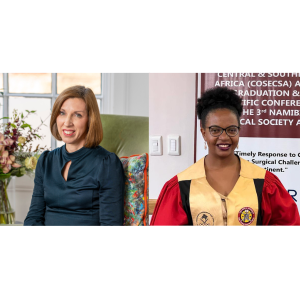
Tuesday Mar 07, 2023
194 - Transforming women’s urological health in Uganda
Tuesday Mar 07, 2023
Tuesday Mar 07, 2023
Dr Namugga Martha Monicah is one of four female urologists in Uganda.
She recently completed the Fellowship of the College of Surgeons (FCS) exam at the College of Surgeons East and Central and Southern Africa (COSECSA) exams, finishing top of her class. She was supported with a sponsorship from Newson Health.
This episode of the podcast, released on the eve of International Women’s Day which this year centres around equity for all, looks at women’s health and access to care in Africa.
Dr Monicah tells Dr Louise Newson about the barriers to women’s health in Africa, the shame surrounding it and the international support making a difference.
She also addresses the stigma around the menopause and the need to move past a ‘suffer in silence’ approach.
Guest’s three tips:
- Anyone in the world who listens to the podcast, know that there is somewhere where menopause doesn’t have to be taken on humbly and that something can be done to improve your quality of life.
- To the African girl child, know that despite all the challenges, the hurdles, you can still do it, you can still emerge victorious.
- In whatever small way, any individual can do something to improve the life of another.
For more about Dr Namugga Martha Monciah, visit https://www.baus.org.uk/professionals/urolink/urolink_home.aspx.
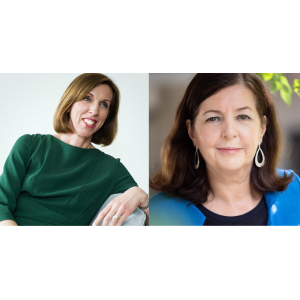
Tuesday Feb 28, 2023
193 - Taking control of your menopause with Dorothy Byrne
Tuesday Feb 28, 2023
Tuesday Feb 28, 2023
Dorothy Byrne returns to the podcast this week to discuss her previous role as former Head of News and Current Affairs for Channel 4 television and the commissioning of and reaction to the menopause documentaries. She also updates us on her new role as president of Murray Edwards College, Cambridge University – one of only two higher education institutions in the UK for women only – and how she hopes to inspire young women especially in the fields of medicine and science.
During the conversation, Dorothy shares some of her experiences of how a menopausal lack of sleep affected her at work, why she continues to take HRT in her 70s, and the ongoing systemic gender discrimination in medicine and the workplace.
Dorothy’s advice to women who are struggling to get menopause treatment:
- Go to your doctor and ask for accurate, up to date information about HRT, and if they are not able to provide this, ask to see another doctor
- Don't think you just have to put up with your symptoms
- Don't be embarrassed by anything related to the menopause. If something’s going on ‘down below’, find out what the cause of it is, it may well be the menopause and there are effective treatments available.
